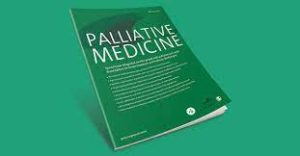Patient’s Spiritual Needs: A Christian Worldview Analysis
Patient’s Spiritual Needs
The intersection of medicine and spirituality frequently presents intricate ethical dilemmas that healthcare professionals, patients, and their families must grapple with. The case study of Mike, James, and the conflicting decisions on James’s treatment is a thought-provoking scenario to delve into the complexities of patient autonomy, the Christian worldview, and the principles of beneficence and nonmaleficence.
Patient’s Spiritual Needs Question 1: Patient Autonomy vs. Rational Decisions
Patient autonomy is a fundamental principle in medical ethics that upholds an individual’s right to make decisions regarding their healthcare, even if those decisions appear harmful or irrational to others. In the case of Mike’s insistence on withholding treatment for his son James, whose illness is deteriorating, the question arises: Should the physician allow Mike to persist in these seemingly irrational decisions?
Respecting patient autonomy is paramount, as it recognises a person’s right to control their life and health outcomes. While Mike’s decisions might appear irrational to medical professionals, they hold deep significance from a Christian worldview. His decisions shape his trust in God’s plan and desire to honour his faith by seeking divine intervention. For the physician, this presents a challenging situation: On the one hand, respecting Mike’s autonomy is essential, but on the other hand, the physician has to prioritise the well-being of the patient, particularly when the patient is a child who cannot fully understand the implications of his father’s decisions.
The physician’s role should involve transparent communication, empathy, and understanding. It’s important to engage in open conversations with Mike, explaining the medical realities and potential consequences of his decisions while also acknowledging his faith-based perspective. A collaborative approach that integrates medical expertise and spiritual considerations can lead to a balanced decision-making process, ultimately striving to align with Mike’s values while ensuring James’s welfare.
Patient’s Spiritual Needs Question 2: Christian Perspective on Sickness, Health, and Medical Intervention

From a Christian worldview, the understanding of sickness, health, and medical intervention is shaped by believing in a sovereign God who governs the universe and deeply cares for His creation. Sickness is viewed as a consequence of living in a fallen world, where sin introduces brokenness and suffering. Consequently, medical interventions manifest God’s grace, allowing humans to participate in healing and restoration.
In Mike’s situation, his Christian faith calls him to trust God while using the available resources and interventions. Striking a balance between trusting God’s plan and seeking medical help is a complex undertaking. Mike’s responsibility as a Christian parent lies in providing the best care possible for his son, understanding that medical treatments can be a means through which God works.
Considering the principles of beneficence (doing good) and non-maleficence (not harm), Mike must navigate a path that honours these principles while being true to his faith. Charity involves pursuing treatments that maximise James’s well-being, even if it means deviating from relying solely on faith-based healing. Nonmaleficence necessitates avoiding harm, which, in this context, includes preventing James from unnecessary suffering that could result from untreated medical conditions.
Mike’s reasoning should involve a holistic perspective that embraces spiritual and medical components. Trusting God doesn’t inherently preclude seeking medical intervention; it emphasises a harmonious integration of faith and practical action. A well-informed decision that considers medical expertise, spiritual convictions, and the best interests of James’s health would be the most responsible approach for Mike.
Patient’s Spiritual Needs Question 3: The Role of Spiritual Needs Assessment
A spiritual needs assessment is pivotal in guiding healthcare professionals to understand a patient’s beliefs, values, and preferences, especially when making decisions that connect with spirituality. In the case of Mike and James, conducting a spiritual needs assessment would help the physician gain insight into the spiritual underpinnings of Mike’s decisions and provide a foundation for collaborative decision-making.
Through the assessment, the physician could explore Mike’s theological convictions, his views on healing, his perceptions of the medical condition, and the role of faith in his family’s life. This information would enable the physician to comprehend the source of Mike’s decisions and provide information tailored to his belief system. Additionally, it would facilitate open dialogue between the physician and Mike, fostering a sense of mutual respect and shared decision-making.
Incorporating the insights gathered from the spiritual needs assessment, the physician can guide Mike towards a more informed decision that respects his autonomy and faith and prioritises James’s well-being. This approach acknowledges the multidimensional nature of healthcare decisions and reflects a patient-centred, holistic approach to medical care.
Conclusion to Patient’s Spiritual Needs
In conclusion, the case study of Mike and James offers a rich context for exploring the intricate interplay between patient autonomy, the Christian worldview, and ethical principles in healthcare decision-making. Respecting patient autonomy while considering the patient’s well-being, aligning medical interventions with the Christian perspective on health, and leveraging spiritual needs assessments for informed decision-making all contribute to a comprehensive and compassionate approach to patient care. The balance between faith, trust, and responsible action guides individuals like Mike through the complexities of healthcare choices, ultimately aiming for the patient’s highest good.
References:
Religion and Spirituality in Health Care Practice. (2018). AMA Journal of Ethics, [online] 20(7), pp.E607-674. Available at: https://journalofethics.ama-assn.org/issue/religion-and-spirituality-health-care-practice.
Rura, N. (2022). Spirituality is linked with better health outcomes and patient care. [online] Harvard Gazette. Available at: https://news.harvard.edu/gazette/story/2022/07/spirituality-linked-with-better-health-outcomes-patient-care/.





